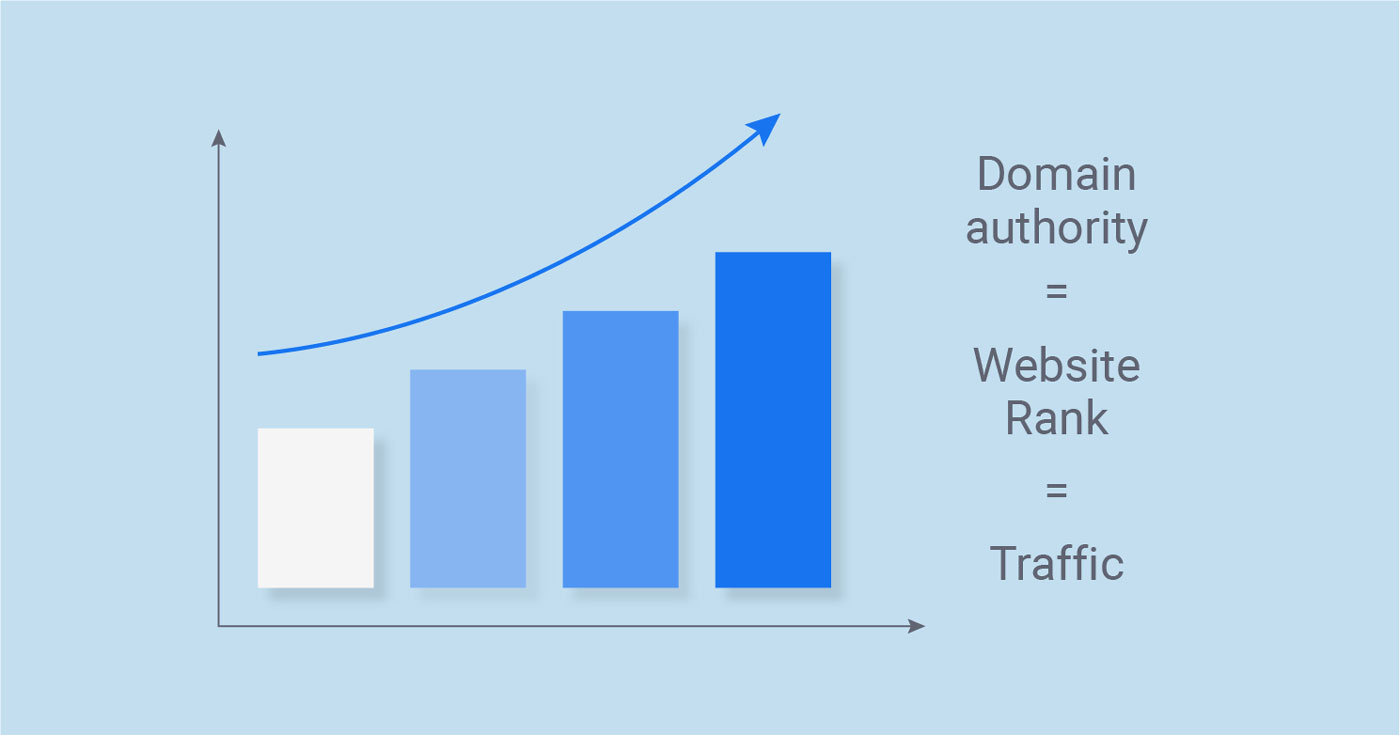In SEO, there is one term that frequently pops up: domain authority. But, what does it really mean and is it still a ranking factor for your website?
Domain authority is a way of estimating how well a website will rank within search engines. The official “domain authority” term and algorithm score was determined by Moz and, whilst some of the criteria for calculating these scores differ depending on the tool, they all measure the same thing, which is a website’s domain’s SEO and ranking power. Moz evaluates domain authority by taking multiple different factors into accounts, such as the number of total links, root domain, and link strength.

Domain authority is an easier way of understanding the way that websites rank on Google. Google’s algorithms, and the way in which they decide what websites rank for which keywords are a mystery and there is no definitive answer.
Whilst Google itself shares best practices and ranking factors, it never clearly states how each website is individually ranked.
Domain authority is perhaps the most accurate representation to understanding how and why websites rank in higher positions than others. High domain authority sites will perform better than lower domain authority websites and, as a result, there is a direct correlation between high rankings and high DA scores. However…
How to Improve Your Domain Authority?
There are numerous different factors that are important when it comes to improving your domain authority, including on-page SEO, high-quality website content, having a mobile-friendly site and site loading speed.
The biggest factor, however, when it comes to increasing your Domain Authority is your website’s link profile. Your domain authority acts as a measurement of how strong, or weak, your website’s link profile is.
Backlinks are the most important ranking factor in the eyes of Google and, whilst there are over 200 different ranking factors, having a strong link profile is perhaps the most important if you want your site to rank and increase the volume of search traffic.
It makes sense that if you want to increase your domain authority, then you must increase the number of backlinks that your website has.
The stronger your link profile, then the higher your domain authority, which in turn means you have a better chance of ranking higher on Google.
What Factors are Used to Determine Domain Authority Scores?
Moz uses a number of different factors, up to 40 arguably, in order to calculate your website’s domain authority. Whilst not all of them are known, there are a few and most important ones which must be considered for the majority of things.
- Linking Root Domains: Root domains are the number of unique backlinks that your website has. A variety in the root domain links is considered as a good practice.
For example, if you have 100 links from one website, then this is considered as one link from one root domain. If you have 3 links across 3 different website, then this counts as 3 root domains. You will build a higher domain authority if you get links from different websites, rather than multiple links on one website. - Search Engine Friendliness: If you have a poor site structure, then Google will find it difficult to crawl your website, which then has an effect on your ranking scores.
- MozRank: Moz uses this metric as a way of scoring the strength of the backlinks on your website. Moz not only takes the number of external links your website has into account but also the quality of these links.
It tends to be quality over quantity with Moz, which means that one great external link is far better than having a couple of poor or mediocre ones.
How Should You Use Domain Authority?
Domain authority and ranking scores are great to use as a comparative metric, but they should never be used as an absolute measurement to gauge how well your website is doing in organic search.
Be sure to regularly check how well your and your competitor’s websites are doing over time, particularly if you are running coordinated campaigns and outreach efforts.
If you are running a link building campaign alongside on-page optimization work, then you will be able to see the correlation between both on and off-page efforts. If you are investing in help from a digital agency, then they will be able to monitor this for you.
Domain authority, whilst useful in understanding your website, should never be used as a sole measurement of your website’s success and ranking.
Whilst it is one of the best reflections, which we know of, of how Google ranks and analyses a website, you should also take findings with a pinch of salt.
Domain authority is a reliable indicator of how well you are performing in comparison to your competitors in SERPs and is calculated from a number of different factors.
If one changes or fluctuates, whether due to site changes or algorithm updates, then this will have a slight, perhaps permanent, impact on your domain authority.
Leave a Reply